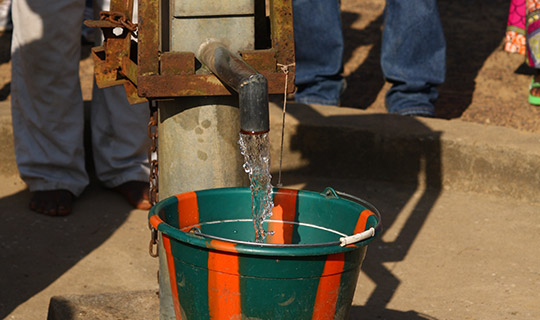The Liberian government has just launched a major new Water, Sanitation and Hygiene (WASH) programme, through support from Irish Aid

The €1 million programme is the latest in a long history of support from Irish Aid to water, sanitation and hygiene (WASH) services in Liberia, with almost half a million people in 12 out of Liberia’s 15 counties having already benefitted from such support. Speaking at the launch of the programme in Monrovia, Irish Aid Health and WASH Advisor, Teta Lincoln highlighted the continuing commitment of Irish Aid to supporting the provision of safe and clean water to the population of Liberia.
Only 25% of the population in Liberia have access to improved sanitation and only 33% to a water source. 55% of Liberian schools are not provided with a functional water supply. This lack of adequate services can have a devastating effect on quality of life, facilitating the spread of water-borne diseases such as cholera, dysentery and typhoid. Worldwide, water-borne diseases cause 1.8 million human deaths every year.
The new programme particularly targets the provision of water and sanitation services in health facilities, schools and rural underserved communities in Liberia. Such a focus recognises the identification of unhygienic conditions and unsafe water as a key underlying factor which contributed to the extent of the recent unprecedented Ebola outbreak, resulting in 4700 deaths. As Liberia continues to recover from the consequences of the Ebola epidemic, it is crucial that safe water, sanitation and hygiene (WASH) facilities are made widely available. Over 50,000 people will benefit from the new programme across five Liberian counties - Grand Cape Mount, Lofa, Rivercess, Sinoe and Rural Montserrado.
A consortium of six non-governmental organizations, with Oxfam as the Chair, will be at the core of the implementation of the programme. The predominant focus will be on ensuring sustainability, involving strong engagement of communities and local authorities and capacity building of community based organizations. The programme will go beyond the construction of water and sanitation infrastructure, aiming at ensuring a real behavioural change towards better hygiene practices, essential for infection prevention and control and long term health benefits.

